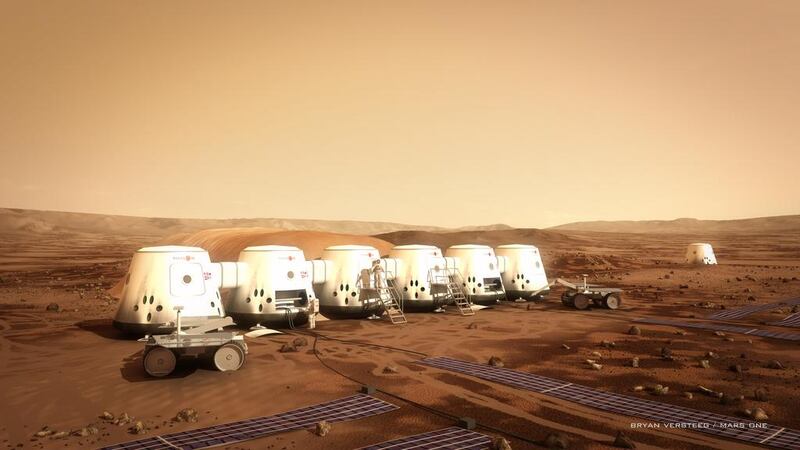DUBAI // The entrepreneur behind what might be man’s first mission to Mars in 2023 is looking for wealthy donors within the Middle East to turn his dreams into reality.
As much as US$6 billion (Dh 22bn) is needed to establish the first human colony on the red planet as part of the privately-owned Mars One space programme.
However, for the right donor, there is the potential to have the Mars base named after them, thereby entering the history books.
“It could be Larry Page City, or Gatesville,” said Bas Lansdorp, the co-founder and chief executive of Mars One.
He said there were about 200 people who had more than US$6bn in personal fortune.
“That’s 200 people who could, individually, afford a human-manned mission to Mars for four people,” he added.
“If you have that much money in the bank, there’s nothing really useful you could do with it. You could make more investments to make more money, but that doesn’t really solve your problem of having too much money.
“You can buy a boat, or an island for US$150 million, but it’s limited. A human mission to Mars on the other hand, gives high net worth individuals the opportunity to establish themselves in the history books forever.
“To fund this, it would be one of the greatest acts of vision in the history of mankind.”
Mr Lansdorp said he was keen to establish contacts with individuals particularly within the UAE because of the Abu Dhabi tie-up with Virgin Galactic.
“There’s obviously a lot of interest within the UAE already,” he said.
The Mars One programme had about 200,000 people volunteering for the initial round of selection – including 52 from the UAE.
Applicant will be shortlisted and placed into groups of four over the next two years. After that they will be trained full-time for seven years in technical skills such as engineering and botany. In addition, they will be required to spend months at a time together in a Mars-style simulation, in which they will be thoroughly tested psychologically.
Mr Lansdorp said the tests were important in order for the final four people to live together harmoniously for the rest of their lives on Mars.
“The technology is there already, we just need the human side in place,” he said. “That’s going to be where the challenge is. But I’m confident that over the next seven years we’ll find a group of four people who can live together.
“There’s not going to be a Lord of the Flies situation on Mars, because we’ll train people so well, and we’ll support them so well once they’re there on Mars.”
The initial training stage, and possibly the actual mission itself, will be televised in the form of either reality TV or a documentary. That will likely make the company a nominal amount of cash, but no where near enough to fund the entire mission.
Mr Lansdorp said how the mission would be portrayed needed to be carefully assessed.
“It’s one of the most important steps in mankind’s history,” he said. “You have to treat it with respect. The people who are doing this are making big sacrifices and need to be treated with respect. You can’t make a Big Brother-style reality TV out of that. So we’ll have to be careful with how we show it.”
mcroucher@thenational.ae






